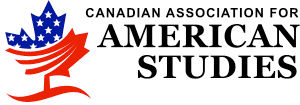Hi all—Christopher Lockett here, the other promised guest-blogger, finally weighing in with my post-mortem on CAAS 2009. We were a bit vague on what these blog entries were to be like, and Jason suggested that I could either post directly here or link to my own blog, or both … but I’ve been scratching away at some thoughts that have taken two distinct paths, so what I’m doing is posting a conference round-up here on the CAASblog, and I’ve posted a more meditative entry on the nature of academic conferences at my blog here.
One thing I’ll say, to start with: when we chose the subject for this year’s conference (“States of Emergency: Crisis, Panic, and the Nation”), we certainly couldn’t have been more topical. That being said, there wasn’t much in the way of papers addressing the various crises of the past year; the most recent topics, on a quick perusal of the program (I’m probably missing some), were on same-sex marriage and far-right responses to Hurricane Katrina. Beyond that were (unsurprisingly) no fewer than eight papers on 9/11, one of which was presented by yours truly. Beyond that, we saw a startlingly broad range of crises and emergencies dating back to the Revolutionary War and before (and indeed, our first plenary speaker Russ Castronovo did a lovely job connecting the dots between the current media noise of pundits like Glenn Beck and the political fictions that circulated during the tenure of President George Washington).
All of which sort of begs the question: is there a point in America’s history when it wasn’t in crisis? Or saw itself as being so? Given the limitations of conference with parallel panels, I only saw about one-third of the papers delivered, so I’m not sure if this ever came up during the question periods—but it strikes me now as a good point of departure for a continuing discussion. Jason has floated the hope that CAAS’ online presence will eventually include discussion boards, which I think is a stellar idea. For now, I guess we can use the comments section of the blog. So, my discussion questions: what is the role of crisis and emergency in the process of American national self-fashioning? Does democracy demand crises, real and imagined? If so, is this a function of democracy generally, or the American incarnation in particular? There you are—as they say here out east, Giv’er!
I make all my comments about the pleasures of the annual CAAS conference in the post on my blog (feel free to comment there too), but I want to note here that this year’s conference was particularly excellent; most of the praise for that has to go to Bryce Traister. I organized the 2008 conference at Memorial in Newfoundland, so I well recognized the vaguely haunted and hunted look in Bryce’s eyes as he prowled the sessions and switched between his participant and organizer hats with aplomb. Cheers to him for a great job.
I’ll be back with more posts reflecting more specifically on the panels and papers in a day or two, or hopefully responses to the comments if there are any.
Incidentally, next year our topic? “The Health of the Nation.” I am SO doing a paper on zombies.
Chris


Please comment with your real name using good manners.